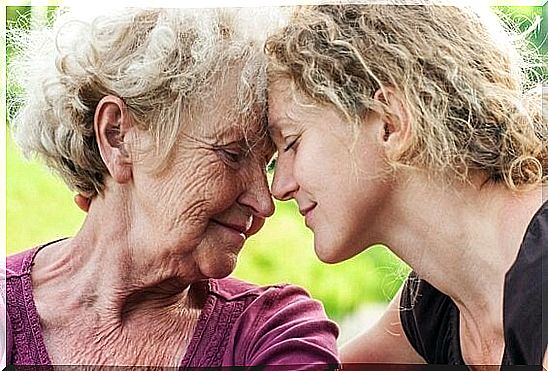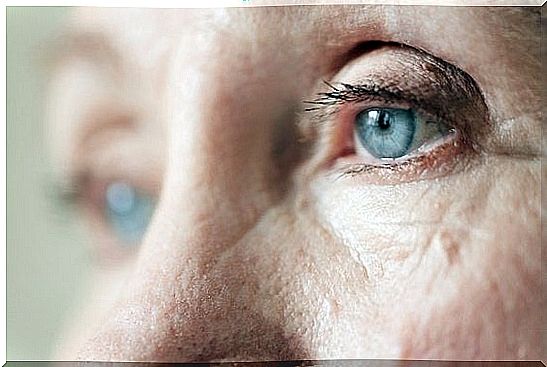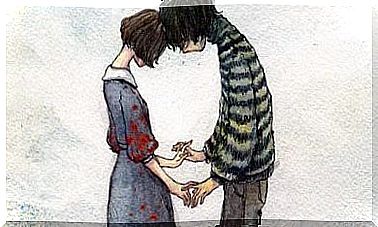How Can You Help An Older Person With The Blues?

Sadness is part of life and no one can escape it. However, there are certain stages of life when we are more vulnerable to grief. One of these stages is old age, that time in our lives when we begin to see youth as a distant horizon that we left behind long ago. If you have an elderly person in your life who is depressed or just sad or has the blues, you may be wondering how you can help.
There are several reasons why grief can occur in old age. Just like in puberty, your body suddenly changes and you no longer have control. The way you interact with your family members and your environment also changes. At this stage, many people stop working, while others deal with the loss of a partner, friends and dreams that will probably never come true.
Helping an older person with the blues is not as difficult as it seems. It is true that they may have serious physical limitations that limit them. However, there are many options that can change their life and make it happier.
Risk factors for depression
The best way to help an elderly person with the blues is to identify their risk factors for depression. Let’s keep in mind that at this stage of their lives many losses occur, while “wins” are rarer. It’s the opposite of what happens in childhood.

Other conditions can increase the risk of depression in later life stages. Here are the main ones:
- health condition. The risk of depression is much higher for people with health problems, especially chronic conditions. This is especially true for degenerative diseases or those involving constant physical pain.
- Character traits. People who are insecure or have low self-esteem are more likely to be swept up in grief as they get older.
- Social economical status. Both economic dependence and a lack of resources at this stage increase a person’s risk of depression.
- Live on your own.
- Having little or no social interaction.
Helping an elderly person who has the blues
Helping an elderly person who is sad is not the same as taking responsibility for their grief. What a depressed person doesn’t need is for someone to “adopt” them, let alone feel sorry for them. What they need is motivation, affection, companionship and support. But the most important thing is that they get respect.
That means accepting their timing, decisions, and preferences. You can give them advice and encouragement, but you also need to let them know that they are the ones making the decisions. Changes will be much more likely if you do this.

What can you do now to help an older person who is not feeling well emotionally?
Guidelines
- Try to get them to question their negative thoughts in the same way that their mood questions their positive thoughts. Do it with love. If they say they feel unable to do something right, ask them if they can do something to change that situation. If they say that nothing interests them anymore, let them speak freely about the reasons, without confronting them.
- Don’t allow them to do nothing all day. Help them find small productive tasks that make them feel useful.
- Promote positive feelings. Help them remember good times in their lives and all their achievements. Ask for their opinion and let them know you appreciate their wisdom and experience.
- Give them incentives to participate in activities, no matter how small they are. A morning walk, reading a book, gardening…any activity is fine.
- Help them develop a good routine. Sadness and depression sometimes cause people to spend a lot of time in bed or watch too many hours of television. Try to sit down with them and reschedule their schedule. But remember, even if you come up with some ideas, they have the last word. Otherwise, you have to constantly monitor them to make sure the ideas are implemented.

You may not realize you are winning until you support the vulnerable. It can fill your life with purpose and greater meaning, and don’t be surprised if you get some wisdom out of it too.
*Editor’s Note: Grief is strictly defined as an emotion and as such does not last very long. In this article, we refer to sadness as a state in which melancholy, despair, and sadness itself predominate, rather than the emotion itself.









